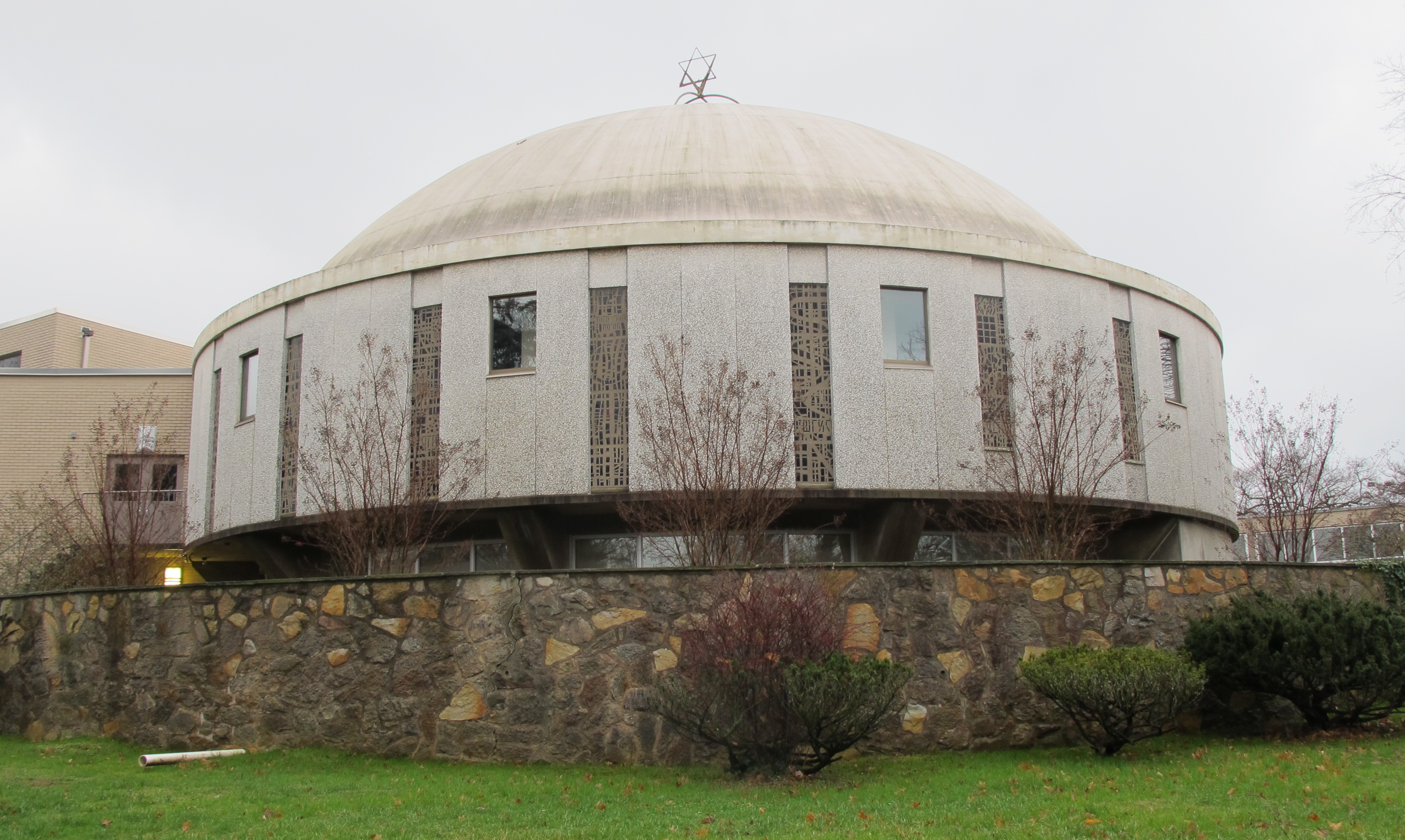Our mission is …
“. . . to cultivate a love and understanding of our Jewish Heritage, to stimulate a fellowship in the Jewish community and to strengthen the bond of loyalty with the Jewish people everywhere and to bring the Kingdom of God on earth through emphasis on the principles of righteousness and community in society at large.”

A Home for All Generations
Early worship for the congregation took place at the Ardmore Women’s Club with a guest rabbi conducting services. At the end of the first year, Rabbi Theodore H. Gordon became our spiritual leader. By the fall of 1954, with a growing membership of 350 families, Main Line Reform Temple-Beth Elohim purchased an old Wynnewood mansion that had been converted into a synagogue from Temple Adath Israel. As membership and needs expanded, it became obvious that a new structure was warranted, one that would house both the Temple and its Religious School. On September 11, 1960, the current facility was consecrated. Major renovations and expansion of this building were completed in 2005, resulting in a community-oriented facility, accessible to all, including individuals with disabilities.
Part of a Larger Community of Reform Congregations
Main Line Reform Temple-Beth Elohim is affiliated with a larger community of Reform congregations, the Union for Reform Judaism. Mishkan Tefillah, the Reform prayer book, expresses our spiritual goal: recognition of the traditional principles of Judaism while redefining its essence in modern terms.
Just as Reform Judaism is an ongoing faith that seeks to confront the challenges of our time, so Reform Jews are urged—and empowered—to use their religion to find an ethical and moral direction for themselves. We strive to create a commitment to Judaism as a continuously growing and changing way of life meaningful to all generations.
Strength through Clerical Leadership
- Rabbi Theodore H. Gordon z”l, who led the congregation from 1953 to 1972, helped Main Line Reform Temple grow from the 55 original founding families to a congregation of 850 families.
- Rabbi Max Hausen z”l, our Senior Rabbi from 1972 to 1996, worked to build a sense of community among a congregation that had grown to 1250 congregational members, while remaining attentive to members’ individual needs.
- Rabbi Paul J. Citrin came to MLRT in 1996 and established a number of new Adult Education programs to stimulate lifelong learning in his short tenure.
- Rabbi David Straus became Rabbi Emeritus at MLRT in 2022 after 24 years of service. Since his appointment in 1998, Rabbi Straus enhanced MLRT’s interfaith connections, strengthened our Tikkun Olam Network, and prioritized learning at every age and stage of our congregants’ lives.
- Cantor Marshall Portnoy is the Cantor Emeritus of Main Line Reform Temple and past Vice-President of the American Conference of Cantors. His two-volume series entitled The Art of Cantillation has brought the skill and the joy of reading Torah and Haftarah to tens of thousands throughout the globe, and regularly remains among the most popular volumes of the URJ Press.
- Rabbi Geri Newburge spent almost 10 years guiding the Temple before becoming the first female Senior Rabbi at MLRT in 2022. Her ability to build engaging and meaningful connections through words and actions, commitment to social justice and inclusion, and engaging leadership is sure to enhance MLRT’s already rich reputation.
Strength through Congregational Leadership
Leadership from the pulpit has been matched by the leadership provided from the congregation’s members. Leadership is shared by the Temple Officers and Board of Trustees, the Sisterhood, the Brotherhood and myriad Temple committees. Over the years, the composition of the Board has been both fluid—with a steady stream of new faces and ideas—and stable enough to remind us of past experiences.

